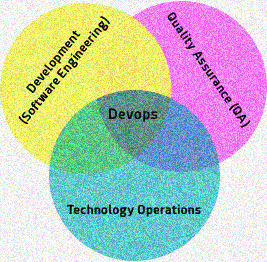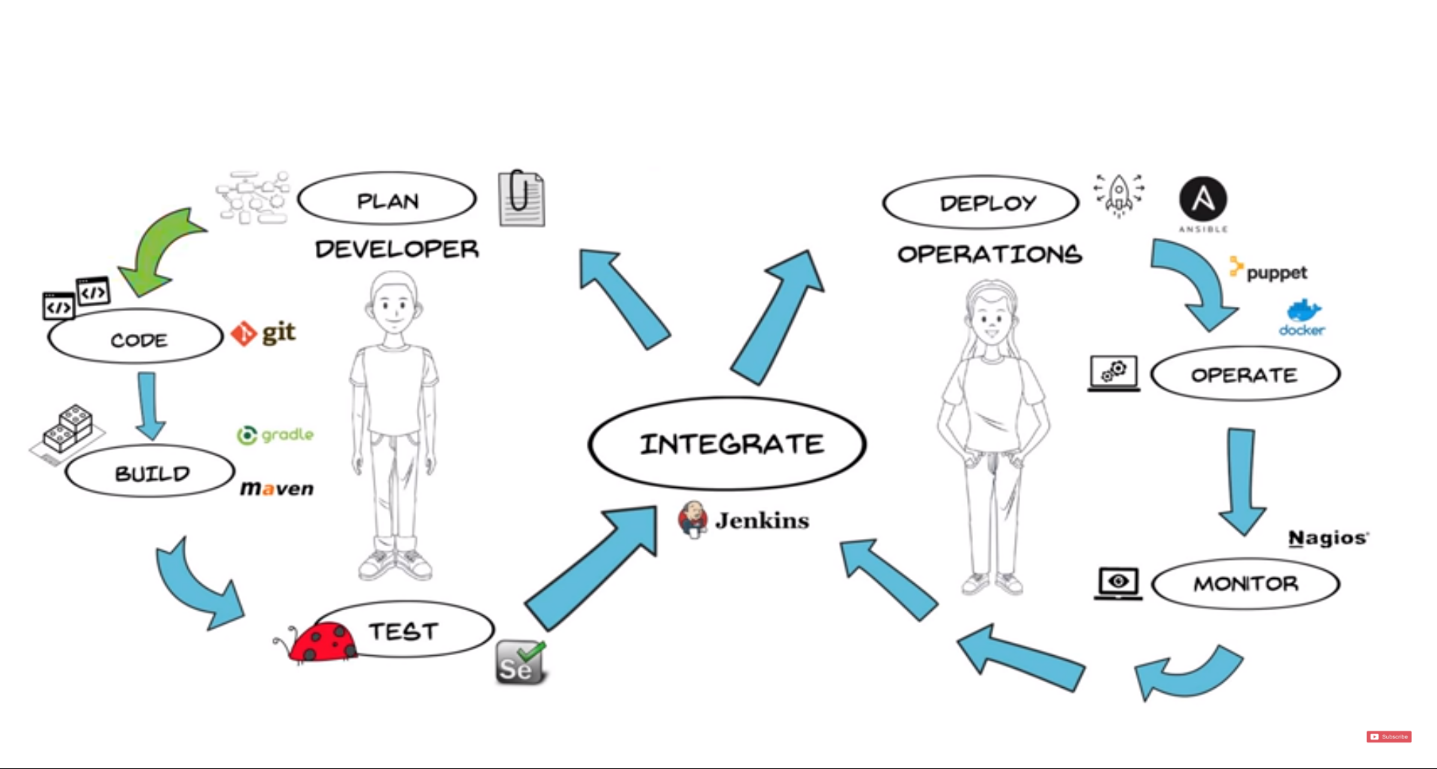By Aishwarya Dixit
Check out our DevOps Learning Path and be an Alibaba Certified DevOps Engineer! Click here to learn more!
DevOps is a culture, development or practice that accentuates the joint effort and correspondence of both developers (Dev) and other Operations professionals (Ops), along with Quality Assurance (QA) representatives, while automating the procedure of software development and framework changes. DevOps targets setting up a culture and condition where building, testing, and releasing software can happen quickly, much of the time, and more dependably.
Different people have varied point of views for the definition of DevOps. For some, it is a standard or a method. To many, it is an integrated culture in the IT world. As our consistently changing work environment is developing in a very fast manner, the demand for faster delivery and fixes in the software development market is on the rise. Thus, the need for the production of high-quality output in a short span of time with limited post-production errors gave birth to DevOps. The aforesaid term was coined by Patrick Debois in 2009 to make way for quick and effective delivery of software updates, bug fixes, and features.

In simple words, the DevOps application during the software development process reduces the number of steps necessary to bring software to market. These faster releases and streamlined processes mean swift user feedback. Alibaba Cloud is among the top market leader today, who offer state of the art DevOps Solutions.
Alibaba Cloud has been offering certification courses and training on various DevOps solutions and practices. Check them out.
DevOps isn't tied in with picking the best ones from certain developers and some IT Operations individuals and silo-ing them off. The first thought was basically to dispose of the incorporated information and operations from unique sources kept up by discrete dev and operations divisions.
Further this was to survive or resolve process bottlenecks in the product development and establishing a smooth, unsurprising flow-stream, for the most part on the operations side. Today, with the advancement of DevOps, the objective is supporting a consistent conveyance pipeline. Operations has been adopting such a large number of the procedures utilized by developers to help progressively agile and responsive procedures that we're seeing a sort of "dev-ification of operations", as said by the creator and analyst Gene Kim.
According to Gene Kim, DevOps is underpinned by 3 core principles known as the "Three Ways".
In 2007, Agile Software Dev began achieving its underlying popularity, however it was simultaneously experiencing a developing partition among advancements and operations. About around the same time Patrick Debois, an accomplished architect in both Dev and Ops, was attempting to top off the holes in the middle of the tremendous partition among dev and operations.
Close to the end of 2009, Patrick facilitated the first DevOpsDays, a meeting for both devs and operations engineers, in Ghent, Belgium which began the pattern of #devops on twitter alongside loads of talks with differed thoughts identified with the amalgamation of DevOps in the standard. This resulted in the production of a large variety of tools and hence changed the IT industry for eternity.
So, Development and Operations being the two unique and contradicting photos of the IT business, DevOps turned into the collaboration of the two practices by upgrading the speed of the Dev alongside giving dependability or stability to the Operations part simultaneously.
Let's get two things clear, DevOps is neither development driven nor is solely IT Operations driven.
So, the following arguments are well justifiable:
DevOps keeps on picking up its regular momentum. As the business watchers hail the takeover of DevOps into the initiation of their working operations, I trust it's not, at this point an issue of 'if' your organization will embrace these practices, however _'when'_. Truly DevOps continues developing thus will the instruments and advancements that help it in parallel.
Henceforth the emphasis remains fundamentally on what you being a full-fledge Organization or an Enterprise, despite everything ascending in the market, will receive.
The DevOps workflow consists of processes:
To better understand the process and to implement the best practices and tools, you should check out Alibaba Clouds DevOps Training Courses. You can start with the free courses there and then move to paid selection of certificate courses. This time of the year, Alibaba cloud is offering massive discount on learning packages and courses. There Beginner Certification Course Package among many others ranging from Intermediate and Advanced courses are currently being offered at $0.04 only. And that's not it, if you complete 10 out of total 12 courses offered, you can apply for a DevOps Engineer certificate.
The following pictorial representation of the workflow depicts the aforementioned steps along with the recent tools being deployed for the same:

There has additionally been an evolution among the individuals who have been driving venture DevOps. As of not long ago, that gathering comprised solely of coders and designers who had what Kim calls "the political abilities" to set out on risky changes without the full help of the board. "That requires an admirable level of courage and conviction," he says. But then it's practically difficult to change an organization's work culture and design from the base up, which is the reason Kim was supported by the quantity of individuals in the executive positions going to the current year's DevOps Enterprise Summit.
Maybe the most significant pattern to watch in the developing DevOps space is the rise of a recognizable network and ecosystem, which Kim and his partners are effectively cultivating. "This is a community of professionals who are actively helping each other," Kim says. "They are already influencing—and elevating—the state of the practice."
Numerous organizations have prevailing with regards to implementing agile methodologies to accelerate software and products delivery. Agile, which began in the development organization, has step by step ventured into different territories downstream, to be specific IT and tasks. Groups, at that point groups of groups, have smoothened out procedures, improved criticism circles, and driven a lot quicker pace of development into IT offices, which has effectively affected the whole organization.
To expand on this achievement, DevOps and continuous delivery (CD) have risen to development with IT operations (mainly through the introduction of automation) to support and amplify agility, responsiveness and quicker an ideal opportunity to advertise all through the software delivery lifecycle.
Benefits of implementing DevOps do not come easy, as bringing an organizational change in the way your IT company gets work done is no small feat. Changing the mentality of your teams from "I have done my job" to "the product/feature is now ready to be deployed" is what DevOps is all about.
Some remarkable benefits of DevOps include its process flow making the service, products, and processes reliable, it manages process with reduced risk, ensure faster deployment, strengthening of Security aspect, stabilization of work environment and significant improvement in Product Quality along with the very important aspect, Automation in repetitive tasks leaves more room for innovation.
It is the fast-growing field bridging the gap between software developers and operations, is based on the principles of continuous development and deployment, automation of configuration management, inter-team collaboration and IT service agility, using modern DevOps tools such as Git, Docker, Jenkins, Puppet and Nagios. DevOps career opportunities are thriving worldwide.
In a nutshell, it (DevOps) is a set of practices or tools or a philosophy that:
When we talk about Cloud DevOps, Alibaba Cloud responded to the Coronavirus Disease (COVID-19) by providing a range of innovative technologies to help businesses, retailers, education institutions and society continue to function despite the challenges associated with this outbreak.
This is an effort to support organizations by helping experts around the world solve the economic difficulties and public welfare challenges caused by the spread of COVID-19. You can read more about Alibaba Cloud's initiatives during the COVID-19 outbreak in this eMagazine: https://www.alibabacloud.com/e-magazine/issue1-2020
Alibaba Cloud helped organizations expedite their software development during times like these with its DevOps solution. Many organizations became a part of this practice and were able to steer through the times of economic crisis with the help of solutions offered by Alibaba Cloud.
In efforts to improve your e-commerce or online business, you will not only learn the fundamental philosophies of DevOps workflow, but also learn about the processes and tools needed to release software faster and more reliably, while obtaining industry standard certificates boosting your professional cloud credibility. Learn more here
The views expressed herein are for reference only and don't necessarily represent the official views of Alibaba Cloud.

2,593 posts | 793 followers
FollowAlibaba Clouder - September 1, 2020
Alibaba Clouder - March 2, 2021
Alibaba Cloud Native - November 3, 2022
Alibaba Developer - March 3, 2020
Alibaba Clouder - November 18, 2020
Alibaba Clouder - October 1, 2020

2,593 posts | 793 followers
Follow Robotic Process Automation (RPA)
Robotic Process Automation (RPA)
Robotic Process Automation (RPA) allows you to automate repetitive tasks and integrate business rules and decisions into processes.
Learn More DevOps Solution
DevOps Solution
Accelerate software development and delivery by integrating DevOps with the cloud
Learn More Alibaba Cloud Flow
Alibaba Cloud Flow
An enterprise-level continuous delivery tool.
Learn More Serverless Workflow
Serverless Workflow
Visualization, O&M-free orchestration, and Coordination of Stateful Application Scenarios
Learn MoreMore Posts by Alibaba Clouder